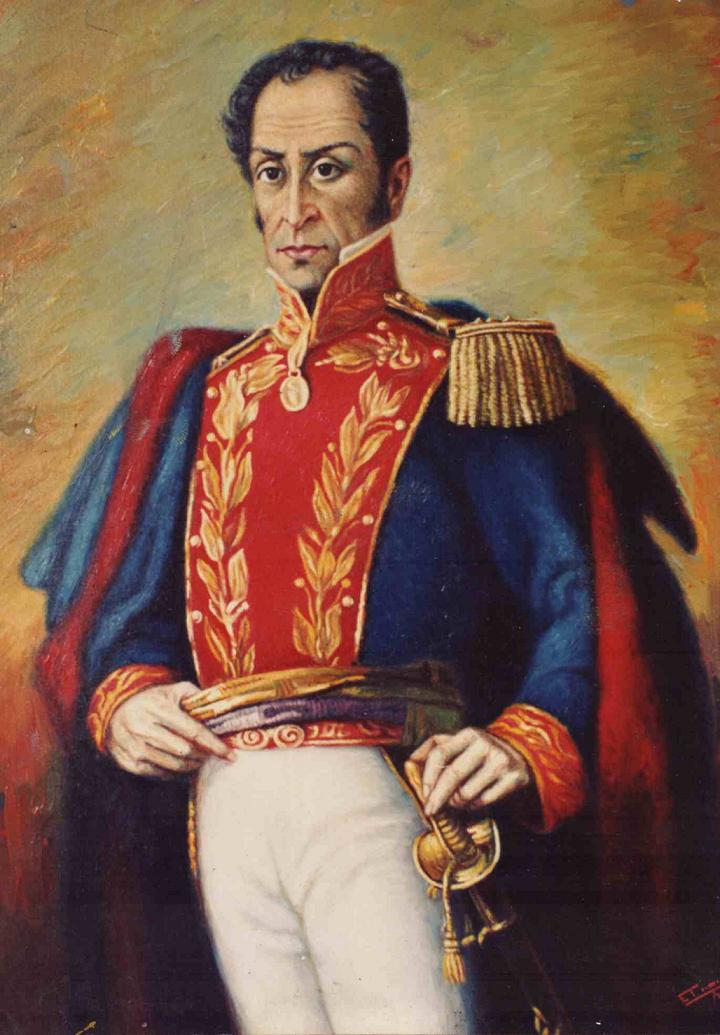4.1.1.10.6 The text “Bolívar, symphony of freedom”, 1945, by Regino Pedroso

The poem “Bolívar, Symphony of Freedom” is a lyrical thesis about the Liberator, with a philosophical content that reiterates man’s struggle for physical and psychological survival, in this case one of universal significance, the mere invocation of which signifies a position taken with respect to Latin American reality and the need to raise the flag of unity.
The book is composed of three sections: “The Flame,” “Elegy of the Hero,” and “Waters of Eternity,” which express stages in Bolívar’s life and his ethical and revolutionary legacy.
The first of these depicts Bolívar’s combat actions, so the rhythm is agile and the structure of the stanzas seems to recall a stampede of swift horses with a fiery impulse, all within the context of the Latin American landscape, which yields to the quest for freedom.
The second adopts a certain elegiac tone in the face of a man apparently defeated by his circumstances, with a moved and reticent lyricism, since in the end no solution is in sight or the obstacles that oppose the highest purposes are too high, too hard.
However, the third section now reclaims the initial enthusiasm by praising the power of ideas, which survive beyond physical death and shine for new generations. The language acquires a certain festive, more substantial quality, since the leader has not “plowed the sea,” as he once believed, but rather his ideas have settled forever in the consciousness of the people.
The text, as its name indicates, is structured like a symphony, meaning that its musicality does not so much constitute the internal framework of the verses but rather responds to a global conception of the work, a procedure that would be used by Alejo Carpentier and that had as a precedent in the nineteenth-century tradition “Mozart rehearsing his requiem” by Tristán de Jesús Medina, but few foundations as such in poetry.
The text stands as a lyrical message of hope, capable of being extrapolated to the Cuban context, since great ideas cannot be realized all at once but require the lives and deaths of great men, those who are great because they are devoted to their people. The thematic depth and lyrical effectiveness make this one of the most aesthetically significant pieces among those that, over the years, have sung the eternal glories of the Liberator.








